✨Best of 2020✨
33 articles, videos and podcasts that helped us make sense of issues big and small.
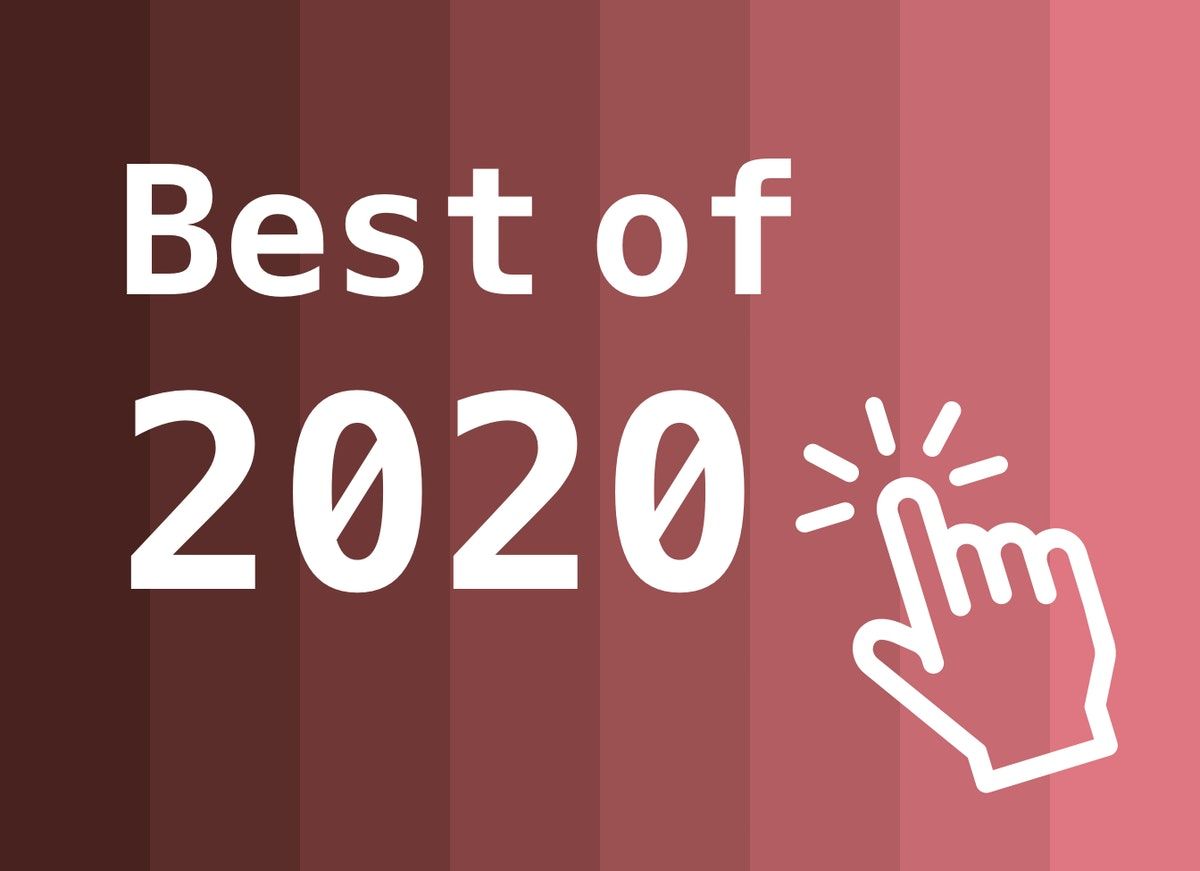
When I relaunched this newsletter a year ago, I promised to help you make sense of the big issues of our time (with a healthy dose of serendipity and nerdiness). Well, 2020 gave us a lot to make sense of.
Week after week, I read the entire internet so you don’t have to, and selected a total of ~250 «best of the week» links (not counting the fleeting instant gratification links at the end of each newsletter).
This week, I went through all those recommendations again, to distill them once again into what I consider the best of the year.
Collectively, they tell the story of a year that was confusing and exhausting in many ways. They are pieces that helped us understand what was happening and what we were feeling (plus, yes, a healthy dose of serendipity and nerdiness we could all very well use this year).
Recommendations in no particular order, all with my original descriptions from when I first selected them.
Against all odds: The inside story of how scientists produced an Ebola vaccine
Imagine this: You have developed a vaccine against Ebola, but no one is interested in bringing it to market — there’s no money to be made. Then, there’s a large outbreak in West Africa, the whole world becomes afraid of Ebola. You do have the vaccine, but it has never been tested with humans. What now? Thanks to some outstanding reporting from STAT, a publication dedicated to life sciences by the Boston Globe Media group, you will find answers. In essence, a story of how our globalised, interconnected world works, for good and bad. Read it now.
My Daughter Died. How Do I Tell My Son?
Being the father of a daughter who is about to turn two, this animated video shook me up more than I anticipated. It’s not just that this father tells the story of how he lost his daughter. But what follows: What it means when your second child grows older than your first one ever became. And that big looming moment: How do you tell your son that he has a sister who is no longer around? Content warning: Contains the description of a child’s death. Watch it now.
New Zealand’s prime minister is showing the world that leadership isn’t a male trait. It’s a human one
Even in 2020, most countries in the world are governed or ruled by men. And when women are in power, they are usually measured against male ideals of what it means to be a good leader. Jacinda Ardern, the 39-year-old progressive prime minister of New Zealand, is challenging all of this. A very thoughful and and thought-provoking profile from The Correspondent. Read it now.
If You Can Say It, You Can Feel It

For a long time, philosophers and scientists assumed that we humans have a limited set of basic emotions — such as fear, joy, anger — that can explain the range of feelings we experience. A more recent theory takes a different approach: We have infinite emotions, so long as we can name them. This makes for interesting neologisms and is at the heart of the internet trope «tfw», with people describing in specific terms «that feeling when…». It has more serious implications, too: New ways of defining emotions «shift the way neuroscientists search for treatments for emotional problems», like depression or anxiety. An eye-opening read.
The Case of the Missing Hit
I must have been smiling all the way through this podcast episode, with occasional laughs and increasing excitement over how it will end. A man in California is haunted by the memory of a pop song from his youth. He remembers the lyrics and the melody, but it is nowhere to be found on the entire internet. A treasure hunt begins, and it’s just…listen to it now, immediately, like drop-everything now.
(Against) Virus as Metaphor
The smartest tangential take on the issue. «It may be that our fondness for virus as metaphor has made it difficult for us to see viruses as potentially dangerous, even lethal, biological phenomena.» Read it now.
How the coronavirus pandemic connects to the climate crisis
I’ve been thinking about the climate crisis a lot lately. 2019 was the year the climate crisis finally got the attention it deserves — only to lose it in 2020 to an even more urgent crisis. And while drastic action to avert a climate catastrophe faced a lot of opposition, we now hope for drastic actions to slow the spreading of a virus. David Wallace-Wells, author of «The Uninhabitable Earth» (highly recommended!), connects the dots. «The crises each echo the other in some unshakeable ways…The lesson here is two-fold, or rather double-edged: we are vulnerable beyond our nightmares, and we can change much more about those brittle systems than we’ve ever really let ourselves believe.» Read it now.
Home Is Not A Safe Place For Everyone
One aspect of «social distancing» I hadn’t considered yet: A policy that asks people to stay home is a dangerous one for people exposed to domestic violence. Read more.
The Feedback Fallacy
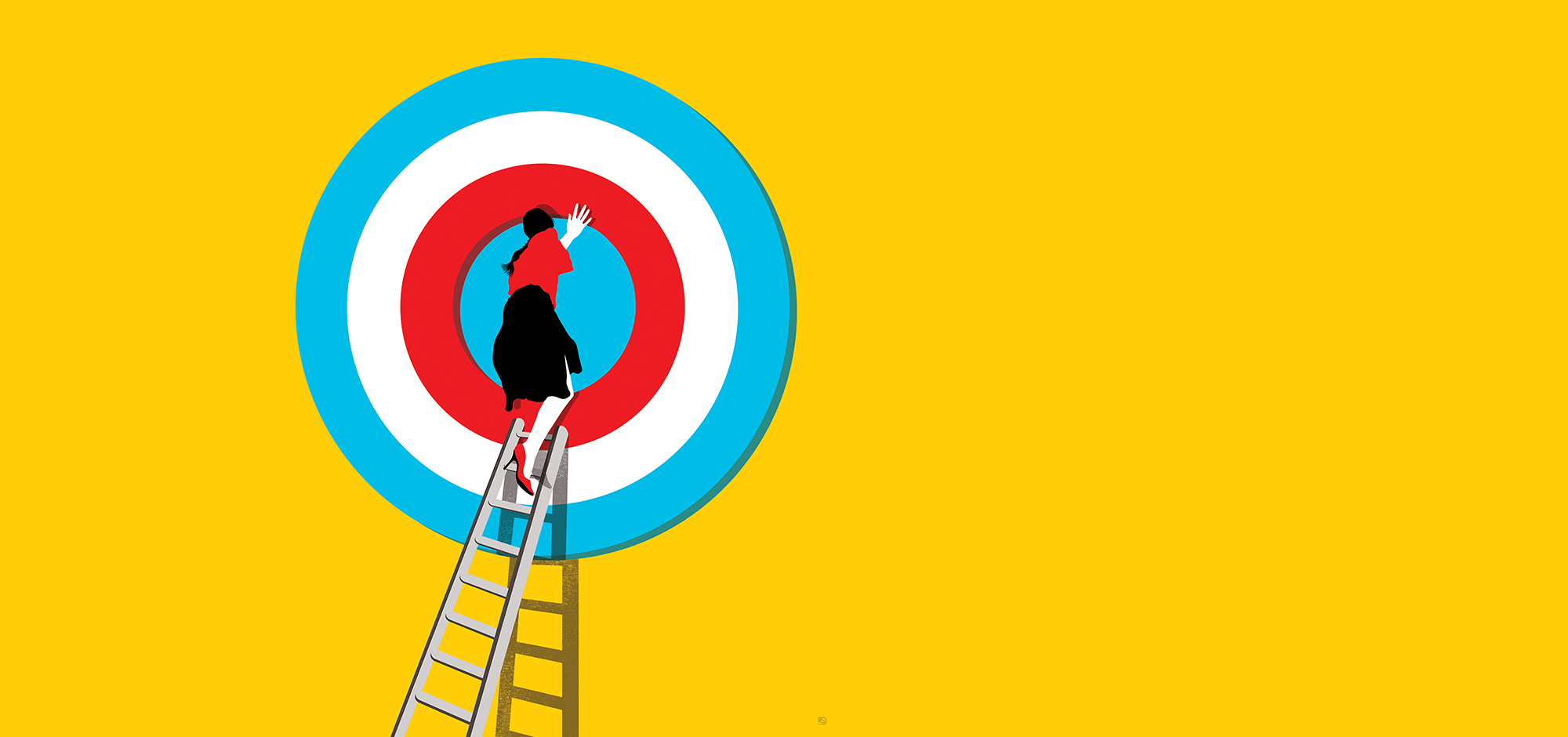
«The first problem with feedback is that humans are unreliable raters of other humans.» In this excellent piece in Harvard Business Review, the authors explain why feedback as it is commonly understood doesn’t work. And they offer a new way to think of it. Not as an evaluation of sorts, which — as research shows — often reveals more about the feedback giver than the receiver. Instead, we should think of feedback as an intervention («That! Yes, that!») that prompts a reflection on why something went well. Read it now.
The Coronavirus Is a Disaster for Feminism
One thing to keep an eye on as we go through and recover from this crisis: «Across the world, women’s independence will be a silent victim of the pandemic.» Another great piece from The Atlantic, which has been consistently outstanding in covering the coronavirus pandemic. Read it now.
The Basecamp Guide to Internal Communication
Sure, every company works a little differently. I still feel these 30 rules of thumb for «how, where, why, and when we communicate» are valuable for everyone. In most jobs, communication is a key factor to how effective you can be and how you feel — and from my own experience and what I hear from others, almost every company would benefit from being more mindful about it. Have a look at them now
You want to reduce the carbon footprint of your food? Focus on what you eat, not whether your food is local
This is a very personal struggle with climate change I have: How much restraint do I impose on myself when I know that most emissions are caused by a few megacompanies, and when I see friends fly all over the globe? For one, there’s a moral imperative to do something. Also, changes in behaviour are contagious, and small changes add up. Then again, you want to be smart about your actions: Restrain yourself where it has the biggest effect. That might not always be where you think it is. This article gives a good overview of how food choices impact the climate — buying local doesn’t matter all that much, sometimes it’s even more harmful to the climate than buying imported food. Read it now
Some people
Usually, Jason Kottke curates the web. He has always been an inspiration for the Weekly Filet. This time, he wrote something himself. It’s beautifiul. «Take heart: you are not the only person experiencing what you are going through. But be mindful: not everyone is having the same experience you are. Ultimately though, we are all in this together.» Read it now.
That Discomfort You’re Feeling Is Grief
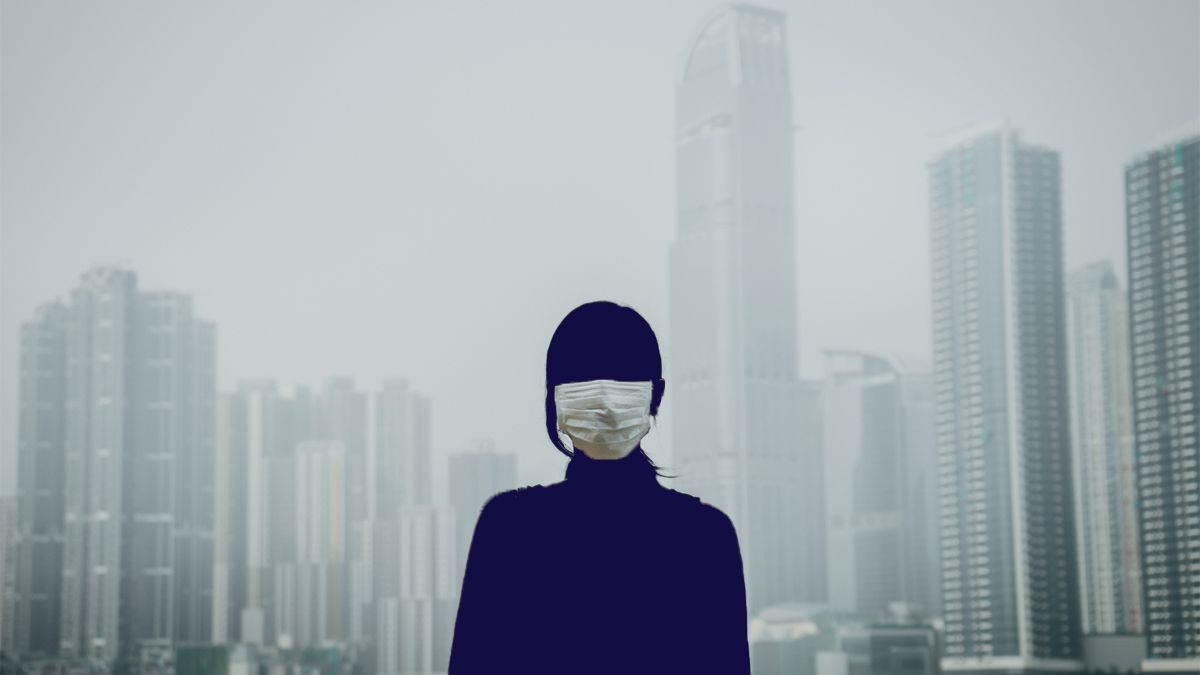
«We feel the world has changed, and it has. We know this is temporary, but it doesn’t feel that way…». A guide to understanding the complex feelings we all experience these days, with David Kessler, co-author of Kübler-Ross’ classic book on the «five stages of loss». His advice: «Stock up on compassion.» Read it now.
How Falling Behind Can Get You Ahead
David Epstein’s «Range: Why Generalists Triumph in a Specialized World» was one of the books that inspired me last year. Since then, there has hardly been a week that I haven’t been reminded of it. If you don’t want to read the entire book, there’s now a TEDx talk in which Epstein walks you through one of his key arguments. Watch it now.
Floodlines
A fantastic new podcast from The Atlantic on the aftermath of hurricane Katrina that left large parts of New Orleans devastated in 2005. The story of an unnatural disaster. Start listening here.
68 Bits of Unsolicited Advice
Advice accepted. Some really great bits, both for your personal and professional selves. Read it now.
Why the Coronavirus Is So Confusing
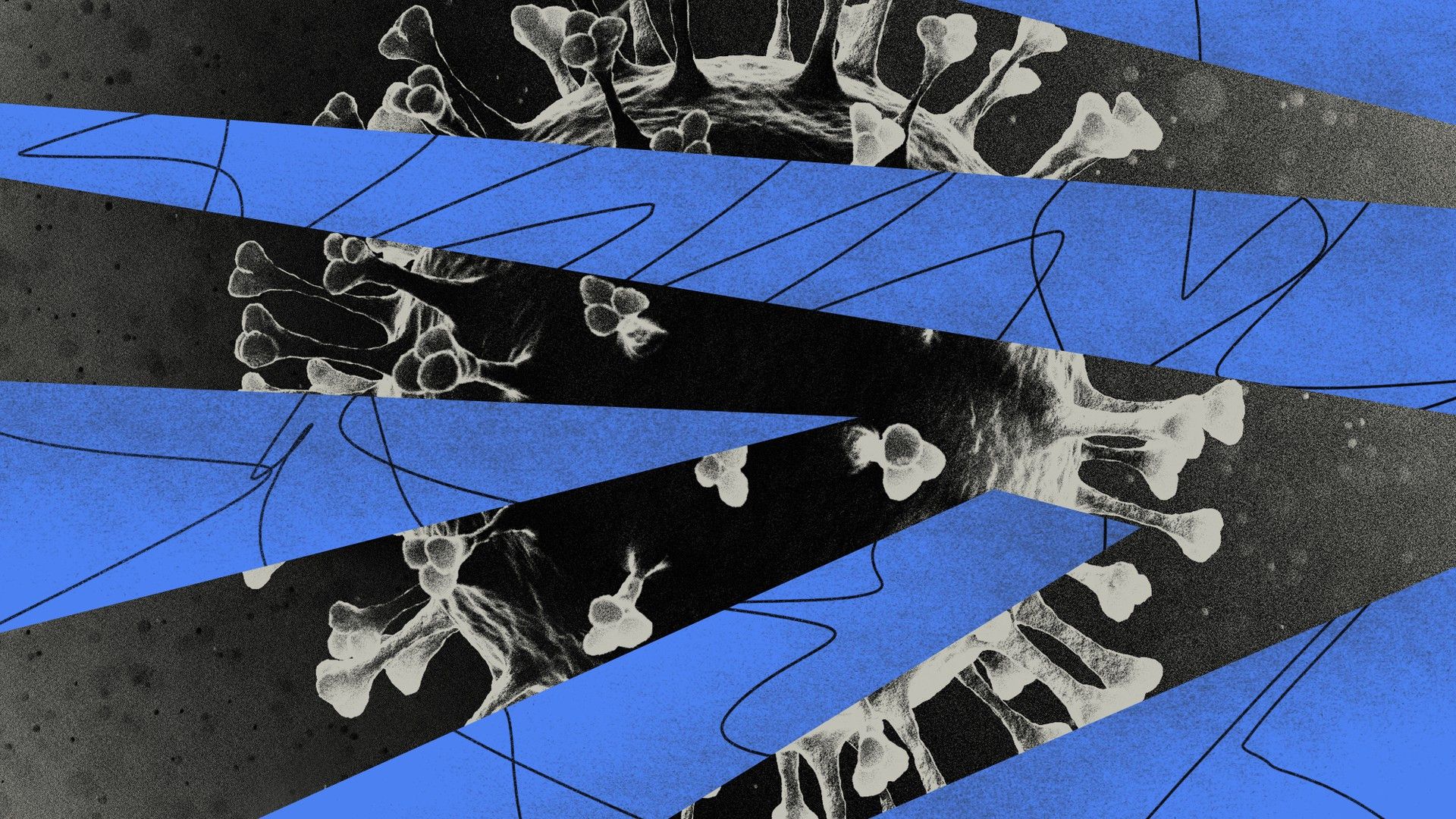
It’s probably quite telling that, a couple months into this crisis, the article that sums it up best is one that reminds us that there is so much we don’t know. «We crave simple narratives, but the pandemic offers none.» Thus, highly recommended: A guide to making sense of a problem that is now too big for any one person to fully comprehend. Read it now.
«How Reddit’s ‹Am I the Asshole?› became the definitive document of the Trump era
«The most philosophical place on the internet» is probably not the first thing that comes to mind when I think about the wildly popular discussion forum on Reddit where people describe situations from their lives, asking the community for a judgement: ‹Am I the Asshole?›. It is, though, a fascinating phenomenon and this article does a good job at capturing it. Why is AITH so popular? «It offers some semblance of accountability in a time in which it seems like assholes are running wild…successfully shutting other people down who are trying to hold them accountable.» Read now.
Doordash and Pizza Arbitrage
Picture this: You own a pizza place. You don’t do home delivery. A tech company, awash in venture capital, decides you actually do home delivery, without asking you. On their platform, people can order pizza, someone picks it up at your place and delivers it to them. Now the fun part: While you sell your pizza at $24 each, people ordering them pay the platform only $16. Obvious next step: You go to that platform, pay $160 for 10 pizze, someone shows up and pays you $240 for those and delivers them…to you. Free money. A piece on the mechanics and absurdities of the highly competitive food delivery business. Read it now.
It Does Not Matter If You Are Good
«You learn that there will be moments, random and unbidden, where to save your life you must convince a stranger that you are in some amorphous way good. And at the same time you learn that it probably will not make a difference.» — R. Eric Thomas. Read.
An unlikely superpower
A personal tragedy leads to an curious discovery: Invisibilia tells the incredible story of a woman who can smell alzheimer’s and other diseases medicine never knew come with a distinctive smell. A superpower that comes with a tricky ethical question: How do you deal with the fact that you might know that some random person you just met is dying and she doesn’t know it? Listen to it now.
In praise of doubt: we should be less sure about everything. Right?
Here’s a rule of thumb I use when evaluating information from a field I know little about: Trust the people who doubt. The Correspondent’s «Numeracy correspondent» wrote a beautiful ode to doubting and explains why people who doubt tend to make better decisions. Read it now.
How STRANGE are your study animals?

The first thing I learned in this article: There’s a term to describe the bias experimental studies can have when their participants are not representative of the world population, but are from societies that are: WEIRD — western, educated, industrialized, rich and democratic. (So, when you report on such studies, you should never write «A new study has found that humans…», but rather «A new study has found that weird people…» — which in itself is already great). The second thing I learned (and what the article is actually about): The same happens when humans (weird people?) study animals. Those animals are…STRANGE — which can make study results less reliable than one might think. Fascinating read. Read it now.
Your ‹Surge Capacity› Is Depleted
«The pandemic has demonstrated both what we can do with surge capacity and the limits of surge capacity.» On mental health during this not-at-all-normal year and why we need to expect less from ourselves. Read it now.
Expiring vs. Permanent Skills
A short essay on the difference between expiring and permanent skills, and the need to focus on those skills that shine less brightly. Includes a good list of permanently valuable skills, those that «compound over decades». My favourite: «The willingness to adapt views you wish were permanent.» Read it now.
This Doctor Wants to Humanize Death
This short documentary from The New York Times is heartwarming and heartbreaking at the same time. It profiles Dr. Nadia Tremonti, who made it her mission to help families cope with the worst that can happen to them: losing a child to an illness. Watch it now.
The meaning of Moria: what we must learn from the refugee camp’s fires
For one thing, the refugee camp in Moria is a symbol for Europe’s hypocrisy. In the age of Covid-19, however, it also symbolises something that goes beyond Europe. «In the early weeks of the Covid-19 outbreak», Jeremy Cliffe writes in the New Statesman, «it seemed like the pandemic might serve as the definitive illustration of humanity’s interdependence.» As it stands now, he concludes, the pandemic hasn’t been «the wake-up call the world needed, much as it should have been.» Read it now.
The Case for Climate Reparations
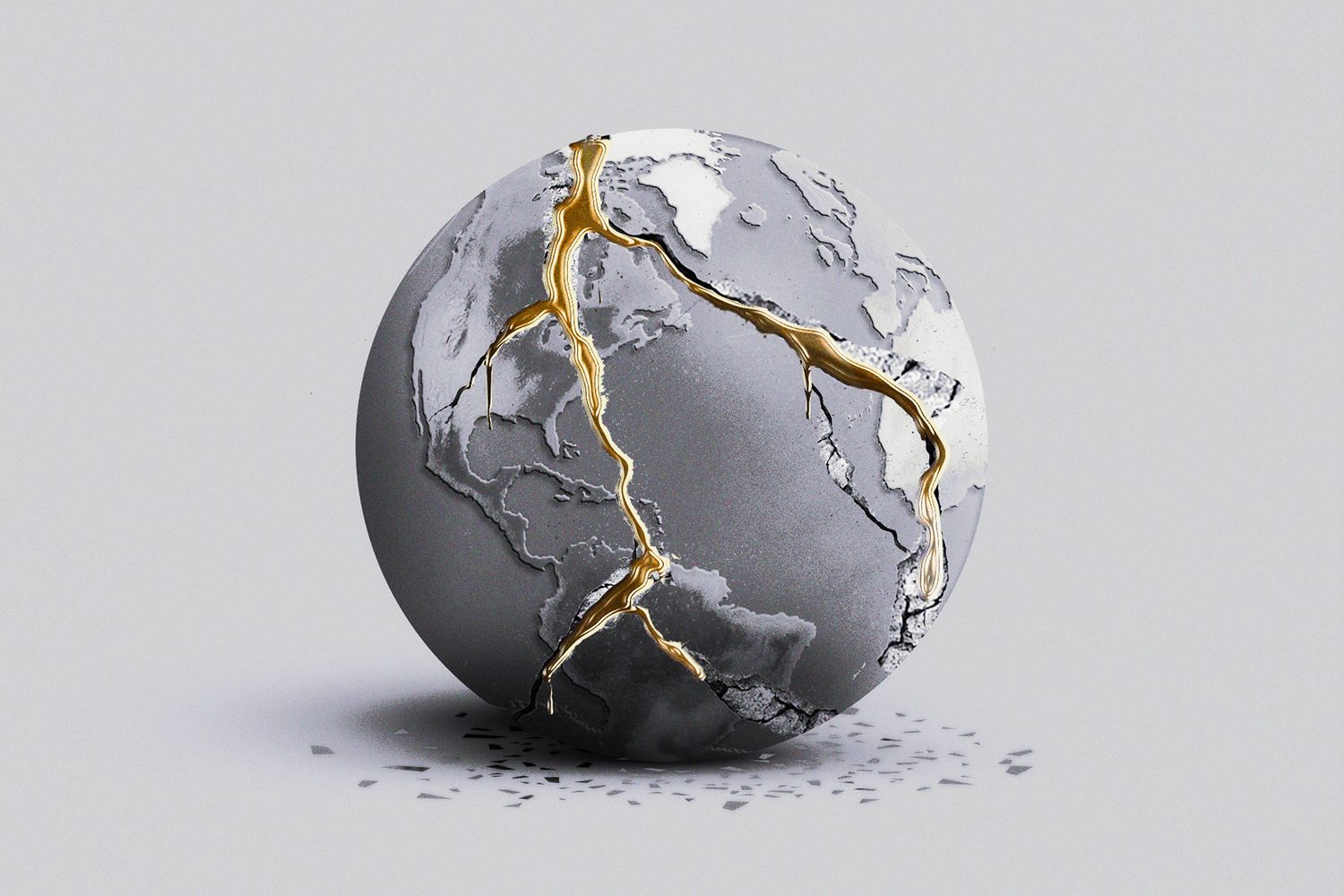
Industrial countries have disproportionally caused the climate crisis that developing countries disproportionally suffer from. Olúfẹ́mi O. Táíwò and Beba Cibralic make a strong case for a «historically informed response to climate migration» that would make the West «grapple with their role in creating the climate crisis and rendering parts of the world uninhabitable.» (I absolutely love the illustration created for this article. Such a great metaphor — one I haven’t seen in this context yet. If you’re unsure what it means, google «Kintsugi») Read it now.
Face the Bitter Truth
Whatever the final outcome, I’m struggling to wrap my head around the fact that more than 70 million Americans have witnessed the past four years and are like: Jup, that’s fine, let’s have some more of that. A lot more people — in absolute numbers — voted for Trump than did in 2016. «We are two countries», writes George Packer in The Atlantic. «The outcome of the 2016 election was not a historical fluke or result of foreign subversion, but a pretty accurate reflection of the American electorate.». It’s the best analysis I’ve read so far — not surprisingly, as George Packer has, back in 2013, written an excellent book for understanding a changing United States: The Unwinding. Read his analysis now.
Feeling disoriented by the pandemic and everything else? It’s called «zozobra», and Mexican philosophers have some advice
It’s always oddly satisfying to learn that there’s a word for a very specific feeling. Like: «the peculiar form of anxiety that comes from being unable to settle into a single point of view, leaving you with questions like: Is it a lovely autumn day, or an alarming moment of converging historical catastrophes?» That’s «zozobra», and as it turns out, Mexican intellectuals have given it a lot of thought over the past century. Read more.
How *Gestures Broadly at Everything* Became the Perfect Meme for Our Bad Times
If there is one meme that was made for 2020, it is *gestures broadly at everything*. This short history of the meme takes us back to 2016 (which, at the time, seemed like a particularly bad year), to David Bowie’s death and a woman with the username @SweetestCyanide. The last paragraph of that story is just…*chef’s kiss*. Read it now.
On Not Meeting Nazis Halfway
«When only half the divide is being tasked with making the peace, there is no peace to be made, but there is a unilateral surrender on offer.» An excellent essay by Rebecca Solnit. Read it now.
Lest I forget: Books. Tons of books.
I think I’ve read more books this year than ever before. I’ve collected all of them in my digital bookshelf. If I had to pick my favourites:
- How To Be An Antiracist (Ibram X. Kendi)
- All We Can Save (Ayana Elizabeth Johnson & Katharine Wilkinson)
- Humankind (Rutger Bregman)
- Difficult Women (Helen Lewis)
- Calling Bullshit (Carl T. Bergstrom & Jevin D. West)
- X + Y: A Mathematician’s Manifesto for Rethinking Gender (Eugenia Cheng).
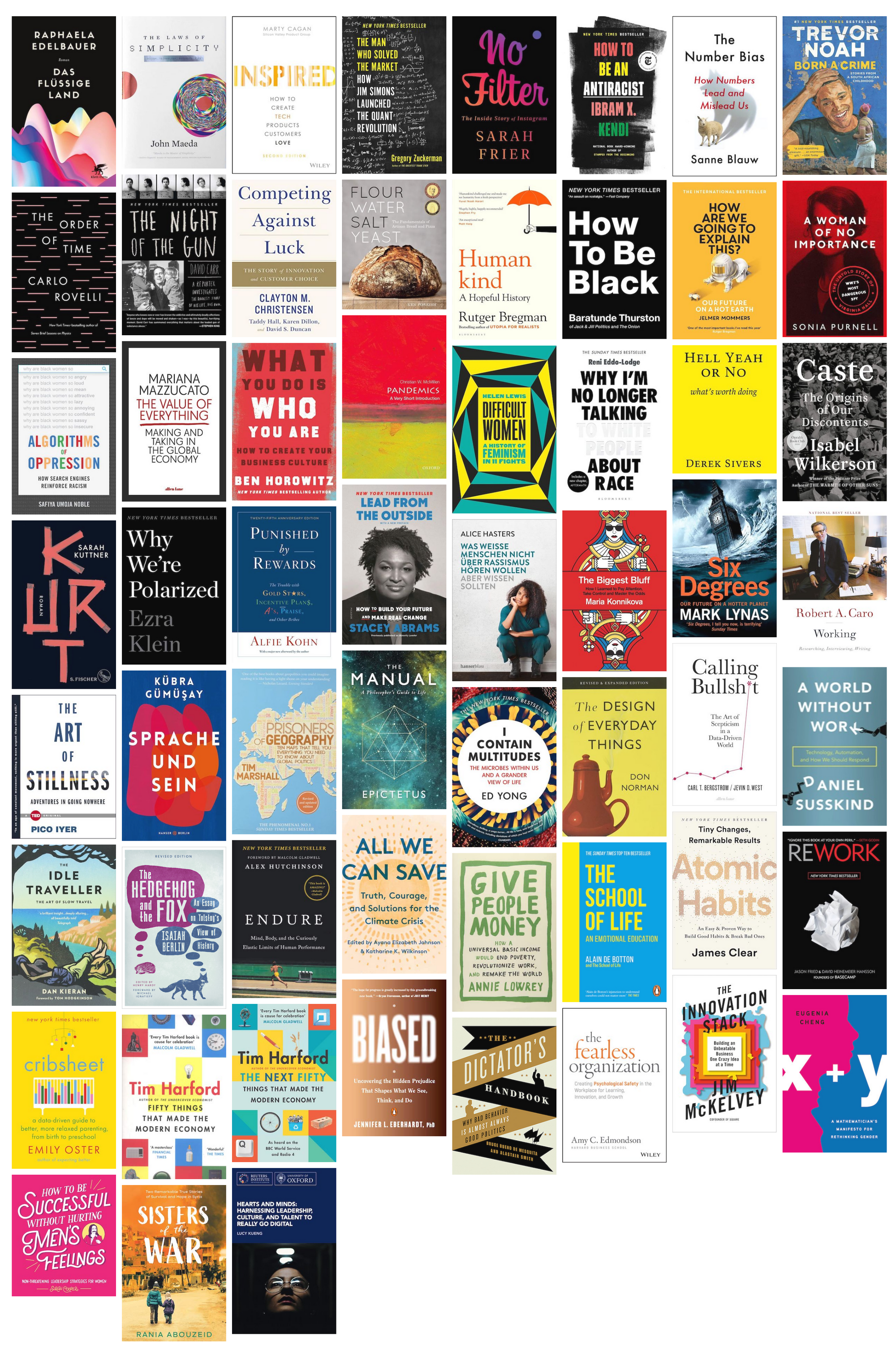
👋 Hello again! You’ve reached the end. Not of bloody 2020. Not of the world as we know it. But of this week’s newsletter issue. Hope to see you soon, and like I said approximately 3 scrollmeters above: I’d love to serve you more recommendations like these. Every Friday, directly to your inbox.

